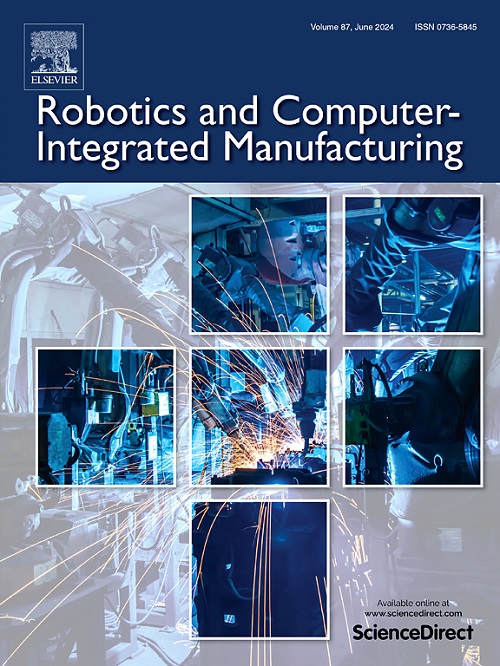Integrated scheduling of green production with flexible preventive maintenance and customer-side workers by a learning-based coevolutionary algorithm
IF 11.4
1区 计算机科学
Q1 COMPUTER SCIENCE, INTERDISCIPLINARY APPLICATIONS
引用次数: 0
Abstract
Previous production scheduling studies on integrating preventive maintenance (PM) plans have overlooked the impact of arranging customer-side workers on the coupling of spare part delivery times, potentially leading to inefficient solutions. To address this gap, this study expands an integrated scheduling model of green two-stage hybrid flowshop production with flexible PM mode and customer-side workers for spare part replacement services. The model arranges tasks for the customer-side workers based on the relationship between delivery timetables, worker selection, replacement sequences, and equipment due time windows, aiming to maximize the total customer satisfaction. Another objective is to minimize the total energy consumption during production, maintenance and idle processes. To solve the large-scale instances, a double deep Q-network-based coevolutionary algorithm (shorten to DDQCA) is proposed, incorporating a six-layer chromosome encoding scheme. In DDQCA, double deep Q-networks are trained online to guide the selection of crossover methods for coevolution. Additionally, the DDQCA incorporates a hybrid initialization operator, two objectives-oriented local search methods and a proposition-based PM strategy to enhance search performance. Finally, comprehensive experiments are conducted to validate the effectiveness of the algorithm. In addition, the results also demonstrate that the proposed integrated scheduling with flexible PM mode can improve energy efficiency but significantly customer satisfaction compared to the classical mode.
基于学习的协同进化算法的柔性预防性维护和客户端工人的绿色生产集成调度
之前关于集成预防性维护(PM)计划的生产调度研究忽略了安排客户端工人对备件交付时间耦合的影响,可能导致低效的解决方案。为了解决这一差距,本研究扩展了一个绿色两阶段混合流水车间生产的集成调度模型,该模型具有灵活的PM模式和备件更换服务的客户端工人。该模型根据交货时间表、工人选择、更换顺序和设备到期时间窗口之间的关系来安排客户端工人的任务,以最大限度地提高客户的总满意度。另一个目标是尽量减少生产、维护和闲置过程中的总能耗。为了解决大规模实例,提出了一种基于双深度q网络的协同进化算法(简称DDQCA),该算法采用六层染色体编码方案。在DDQCA中,在线训练双深度q网络来指导协同进化交叉方法的选择。此外,DDQCA还结合了一个混合初始化算子、两种面向目标的局部搜索方法和一个基于命题的PM策略来提高搜索性能。最后进行了全面的实验,验证了算法的有效性。此外,结果还表明,与传统模式相比,柔性PM模式下的集成调度可以提高能源效率,但客户满意度显著提高。
本文章由计算机程序翻译,如有差异,请以英文原文为准。
求助全文
约1分钟内获得全文
求助全文
来源期刊
CiteScore
24.10
自引率
13.50%
发文量
160
审稿时长
50 days
期刊介绍:
The journal, Robotics and Computer-Integrated Manufacturing, focuses on sharing research applications that contribute to the development of new or enhanced robotics, manufacturing technologies, and innovative manufacturing strategies that are relevant to industry. Papers that combine theory and experimental validation are preferred, while review papers on current robotics and manufacturing issues are also considered. However, papers on traditional machining processes, modeling and simulation, supply chain management, and resource optimization are generally not within the scope of the journal, as there are more appropriate journals for these topics. Similarly, papers that are overly theoretical or mathematical will be directed to other suitable journals. The journal welcomes original papers in areas such as industrial robotics, human-robot collaboration in manufacturing, cloud-based manufacturing, cyber-physical production systems, big data analytics in manufacturing, smart mechatronics, machine learning, adaptive and sustainable manufacturing, and other fields involving unique manufacturing technologies.

 求助内容:
求助内容: 应助结果提醒方式:
应助结果提醒方式:


